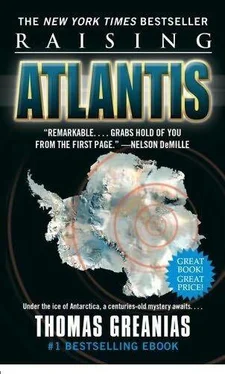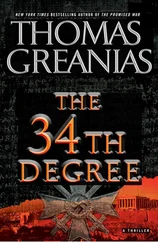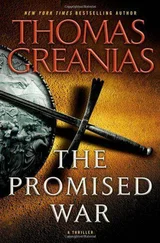“Serena,” he said.
Every man has his own Atlantis, Conrad knew, a part of his past or himself that seems submerged and gone forever. Serena Serghetti was his Atlantis, and now she had suddenly resurfaced.
Serena said nothing for a minute, simply smiled at him and looked around. Then Nimrod trotted up to her and licked her wool mitten. She scratched the appreciative husky’s ear.
Conrad glanced at Yeats, who was standing silently next to him, and at the two armed MPs in freezer suits behind Serena. All seemed to be waiting for some sort of utterance.
Finally, Serena spoke her first words to Conrad in five years. “You have a permit for her?” she asked, petting Nimrod.
Conrad blinked, incredulous. Perhaps he was so lost in the moment he hadn’t heard her correctly. “For the dog?”
Serena nodded. “Huskies have been banned from the continent since 1993, as have any species not indigenous to Antarctica. I think that includes you, Conrad, along with your friends here.”
Yeats stared, jaw open. “You two know each other?”
“Don’t you recognize her?” Conrad said. “This is Serena Serghetti, aka Mother Earth, formerly the Vatican’s top linguist and now an environmentalist and official pain in the ass.”
“Only if you’re an ass,” Serena said brightly and extended a mitten toward Yeats. “General Yeats, you look warm-blooded in person. Not at all like Conrad described you.”
Conrad looked at Yeats, who let the dig slide. “The Vatican?”
“Actually, I’m here as a representative of the Australian Antarctic Preservation Society and an adviser to the environmental committee of the United Nations Antarctica Commission. This land belongs to Australia, you see, according to Article Four of the Antarctic Treaty, of which the United States is a member. All members are required to give notice of expeditions, stations, and military personnel and equipment active in Antarctica. You haven’t stated your business on our territory, General Yeats.”
Conrad’s mind was reeling, trying to take in her mysterious appearance in this frozen hell, let alone this bizarre exchange with his father about arcane minutia in international law.
Yeats cleared his throat. “Article Four, while recognizing that some nations lay claim to territory, expressly states that those claims do not have to be honored by other nations,” Yeats said evenly. “In other words, seventy nations instead of seven could have territorial claims here, Sister Serghetti, but the United States does not recognize their validity.”
“Maybe so,” Serena replied. “But there’s no ambiguity to Article One, which clearly and forcefully bans any measure of a military nature, which is tough luck for you.”
“Unless such measures are for scientific purposes.”
“And what purpose is that, Conrad?”
Conrad realized she was addressing him. And he said the first thing that popped into his head. “We’re mounting a salvage operation.”
He studied her reaction as she looked around and took in the command center doors down the corridor and soldiers with polar-protected M-16s.
“You mean for that C-141 that crashed?” she asked. “I saw the wreckage when I landed on your runway.”
Conrad glanced at Yeats, who seemed impressed. Not only was she Mother Earth. She was also the Flying Nun. No wonder Yeats’s jaw was on the floor. “You landed a plane?” Yeats asked.
“Your base is hard to miss with a fissure as wide as the Colorado River snaking around it. Did you cause that crack?”
“It was already there,” Yeats said defensively.
“Then you won’t mind if I have a look,” she said. “The Antarctic Treaty provides for the right of access and inspection to all bases. Consider us official inspectors.”
She stepped aside and Conrad saw behind her four well-built young men with dark, deep-set eyes. Video and sound equipment rested heavily on their broad shoulders.
Conrad said, “Who are they?”
“My camera crew. As long as we’re making an inspection, I assume we can take pictures?”
“Sure,” said Yeats, who motioned to the MPs to relieve the men of their equipment. “You can inspect everything from the brig.”
Conrad watched Serena and her crew in their respective cells on two monitors in the command center. The men were sitting quietly on the floor like caged foxes. Serena, meanwhile, was stretched across her bunk like Sleeping Beauty.
“You can’t just lock up Mother Earth,” he told Yeats. “The world’s going to find out.”
But Yeats was focused on the other monitors that showed various grainy images of the P4 Habitat and a drill rig atop the flat summit of P4, where a work crew was tunneling down the north face of the pyramid as Conrad had instructed.
“You better pray your hunch about a shaft pays off, son. Or I just might lock you up too. And, frankly, in your case, the world won’t give a shit.”
Conrad opened his mouth to say something when Colonel O’Dell walked up with a file. Conrad caught his disapproving glance and realized he was the only civilian running loose on the base. O’Dell looked itchy to toss him into the brig with the rest of them.
“Here’s that NSA report on Sister Serghetti, sir.”
“Thank you, Colonel.”
Conrad watched as Yeats scanned the file. “The NSA keeps files on nuns?”
“Nuns who develop a universal translator based on the Aymara language,” Yeats said. “The NSA has been trying to get its hands on Sister Serghetti’s system ever since. The Aymara language is so pure that the NSA suspects it didn’t just evolve like other languages but was constructed from scratch.”
“Explain that to us, Doctor Yeats,” O’Dell blurted out.
Yeats shot O’Dell a nasty glare, but Conrad didn’t flinch.
“The earliest Aymara myth says that after the Great Flood, strangers attempted to build a city on Lake Titicaca,” Conrad said. “We know what’s left of it as Tiahuanaco, with its great Temple of the Sun. But the builders abandoned it and disappeared.”
“And just where on earth did these builders come from?” Yeats asked him in earnest.
“According to legend, they came from the lost island paradise of Aztlan. The Aztec version of Atlantis,” Conrad said, staring at his father. “So what are you saying?”
Yeats closed the file. “The Good Sister might know the language of the people who built P4.”
Serena had always pictured Antarctica as a symbol of peace and harmony, a model for how humans could live with one another and all species with which they shared the planet. She had also held similar such illusions about her relationship with Conrad. But now as she looked around her cell inside Ice Base Orion, her dream had melted away to reveal four cold walls, a tiny sink, and a urinal.
There was a hidden camera somewhere, she was sure, and General Yeats and that tosser Conrad no doubt were watching her every move. But they couldn’t read her mind. So she sat on her bunk and pretended to be alone with her thoughts.
As an Australian she felt more kinship with Antarctica than the Americans. So often as a little girl she would look across the sea and know that the great white continent was on the other side. Australia was the closest of the world’s nations to Antarctica and claimed 42 percent of it, including most of East Antarctica and the very ground-or ice over the ground-on which the Americans had constructed this secret facility.
But for all her work in Antarctica-mostly saving leopard seals or minke whales-her experience had been confined to the spectacular landscapes on the fringes of the continent. There the wildlife was wonderful and the auroras glorious. But this mission into the interior snow deserts had proven Antarctica to be an empty continent indeed. Even now within the warmth of this American base, she could sense the barrenness.
Читать дальше












